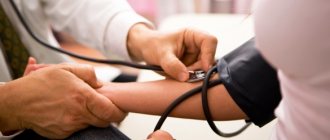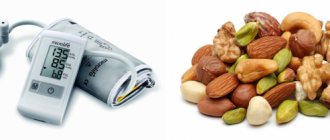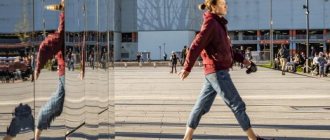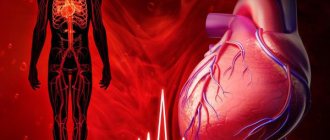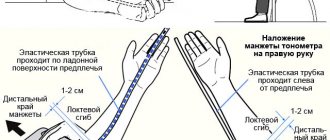Frequent daytime sleepiness is one of the symptoms of many diseases. Among them is arterial hypertension. Experienced hypotensive patients know: as soon as blood pressure drops, lethargy immediately arises and an unbearable desire to sleep occurs.
However, there is also an inverse relationship: lack of sleep affects the condition of blood vessels and blood pressure levels. Let's figure out what the relationship is between insomnia and blood pressure problems.
Symptoms of lack of sleep
It is believed that common symptoms of “chronic sleep deprivation” are absent-mindedness, drowsiness, unreasonable irritability and fatigue. This is not a complete list of the causes of specific symptoms.
The main signs of lack of sleep are presented in the table:
| Symptom | Description |
| Reduced performance | When performing assigned tasks, a person experiences serious difficulties. If he is engaged in intellectual work, then it becomes difficult for him to understand what exactly is required of him. A person notices that more time is spent on a specific task than before. He is constantly distracted and has difficulty collecting his thoughts. |
| Frequent colds | Due to constant lack of sleep, the immune system is weakened. The body becomes defenseless against infections. A person can get sick “out of the blue” - after a glass of ice cream, or after 1 sip of cool mineral water in the heat. |
| Memory problems | The brain is somewhat similar to a computer device. When a person sleeps, his personal “computer” goes through a “restart” process. Unnecessary information is erased, new data is recorded. The body also processes the information received during the day (usually this is expressed in bizarre and not so bizarre dreams). When sleep is disturbed, these processes are absent. As a result, the person becomes distracted and forgetful. |
| Weight gain | Extra pounds appear as if out of nowhere. The reason is an increase in the concentration of the stress hormone cortisol. The second reason is a malfunction in the diet, when a person who does not experience the pangs of hunger during the day awakens a “brutal” appetite at night. |
| Susceptibility to stress | Constant lack of sleep leads to wear and tear of the nervous system. The person becomes capricious, hot-tempered, irritable. In the worst case, neuroses develop. |
What are the reasons for lack of sleep?
OCD
distinguishes between internal (diseases) and external causes of sleep problems.
| Cause | Description | Symptoms |
| Stress | Anxious, suspicious, impressionable people who exaggerate the significance of unfavorable events are prone to sleep disturbances. Before going to bed, a person thinks about a real or imaginary problem, punishes himself for not saying something (or, conversely, saying too much). This helps reduce the production of melatonin (sleep hormone) and increase adrenaline synthesis. For this reason, the nervous system becomes overexcited and cannot calm down for a long time. | A long process of falling asleep (more than 30 minutes), fear of not falling asleep until the morning, rapid heartbeat, inability to fall asleep (when a person begins to fall asleep, an internal shock occurs and he wakes up. There may be several such shocks, often they follow one after another). Sometimes the music “turns on” in your head. Sleep is superficial, there are disturbing, nightmare dreams. |
| Nervous and mental disorders | This symptom is observed in people with manic-depressive syndrome, subdepressive and depressive states (protracted cases), obsessive-compulsive disorder. | Severe anxiety before falling asleep, frequent awakenings at night, short sleep (a person wakes up between 3 and 5 o’clock and after that cannot fall asleep. Sometimes during this period there is superficial “drowsy” sleep. Cases of sleep paralysis cannot be excluded). |
| Physiological pathologies | This applies to older people and young children. | Severe snoring, symptoms of hypertension and angina, restless legs syndrome, |
| Jet lag | Doctors advise going to bed before 23:00. If a person goes to bed for a long time, either earlier or later (for example, at 21:00, the next day after 24:00, and then at 22-23:00), his biological rhythm will be disrupted. | – |
Note! 20-30% of people are diagnosed with hypnophobia. This disorder is characterized by a fear of falling asleep. The reason for this is the fear of dying in your sleep. According to some reports, I.V. suffered from this disorder. Stalin.
Is it possible to understand from tests that a person sleeps little?
To date, there is no blood test that can determine sleep deprivation. There are functional sleep studies:
- Oximetry - A clothespin-like probe placed on a finger or earlobe and continuously measures oxygen levels and heart rate.
- Polysomnography is the gold standard for diagnosing sleep disorders. While a person sleeps, various physiological parameters are recorded, including EEG, ECG, respiration, oxygen levels, muscle tone, eye and limb movements.
- Titration is an increase in air pressure in a room.
- Multiple sleep latency testing or nap study - the patient is placed in bed and left to fall asleep for 20 minutes. They look at when sleep comes and how REM sleep goes. The procedure is continued every 2 hours and so on 5 times.
- Actigraphy is now the most popular and accessible tool. Measures activity using a small wristwatch-sized device. This device monitors movement and can be used to evaluate sleep-wake cycles and circadian rhythms (internal clock) over long periods of time. Something similar is built into smart watches.
Jeffrey S. Hall, Michael Rosbash and Michael W. Young jointly won the 2021 Nobel Prize in Physiology or Medicine "for their discoveries of the molecular mechanisms that control circadian rhythm." In 2018, scientists at the Sleep Research Center at the University of Surrey in the United Kingdom developed a blood test that would allow them to assess biomarkers of sleep deprivation. The next step is to create a simple blood test that can detect sleep deprivation.
Today, the difficulty of using standard blood tests to diagnose insomnia is that it is not entirely clear whether the changes were due to insomnia or changes in the body led to lack of sleep.
Lack of sleep can be indirectly determined using a test for melatonin levels. Melatonin is a hormone that controls circadian rhythms: sleep and wakefulness.
Its maximum production occurs between 01:00 and 03:00 during sleep in complete darkness. Even briefly turning on the light at night can significantly reduce hormone synthesis.
A disruption in the production of melatonin occurs during jet lag; insomnia; delayed sleep phase syndrome; depressive disorders, etc.
Tests can reveal the underlying disease, since in most cases, insomnia is secondary. Most often it is a symptom, not the root cause.
What are the physiological causes of insomnia?
Sleep disturbance can occur in any person under the influence of stress, overexcitation, due to a change in time zone or illness. Lack of sleep can transform into chronic insomnia.
Disruption of the circadian rhythm almost always leads to insomnia. This situation occurs during shift and shift work, as well as among those who spend a lot of time in the evening watching TV or computer. Excessive light from screens in the evening and night hours causes desynchronosis - a disruption of the circadian biorhythm, which, in turn, leads to sleep disturbances.
Some medications can disrupt your sleep:
- Alcohol-based medications. Many cough, cold and flu medications contain alcohol, which can interrupt sleep and also reduce the time spent in restorative REM sleep.
- Cardiovascular drugs - antiarrhythmics, beta blockers, statins. They may make you feel sleepy during the day and have trouble falling asleep at night.
- Antihistamines. Drowsiness is a common side effect of these medications, which are used to relieve cold and allergy symptoms. However, they can negatively affect the quality of your sleep. You will fall asleep faster, but the sleep will be ineffective.
- Corticosteroids. An increased risk of sleeplessness at night may be associated with taking asthma medications.
- Diuretics. They may keep you awake due to side effects such as frequent urination and nighttime cramps.
- Selective serotonin reuptake inhibitors. They are used to treat depression and anxiety. Taking them may lead to daytime sleepiness and poor nighttime sleep quality.
- Anticonvulsants, painkillers, hormonal drugs and medications containing caffeine.
And finally, cardiovascular (arrhythmias, arterial hypertension), pulmonary (chronic obstructive pulmonary disease, COPD), musculoskeletal (arthritis, rheumatism), genitourinary (prostatitis, urinary incontinence), neurological ( Parkinson's disease), infectious (influenza, ARVI) and endocrine diseases (thyroid diseases), itching (herpes), gastrointestinal disorders and metabolic disorders.
Psychological consequences
Constant lack of sleep can cause:
- deterioration of short-term memory (against this background it will be difficult to remember even a phone number or the name of a new acquaintance);
- deterioration of long-term memory (it becomes difficult for a person to remember what happened recently or learn something new);
- decreased attention;
- deterioration in planning ability (against this background, coordination of one’s own actions weakens);
- strengthening of bad habits (a person with lack of sleep experiences a “hellish” desire to smoke, drink or eat something filling and high-calorie);
- tendency to rash gambling;
- death of brain cells (up to 26% of brain cells die due to prolonged sleep deprivation);
- development of mania (observed with a very long sleep disturbance, accompanied by hallucinations, delusions, severe anxiety. This condition is very dangerous both for the person himself and for those around him).
Hallucinations
Important! Driving while insufficient sleep is much worse than driving under the influence of alcohol.
There are many cases where a person who fell asleep at the wheel caused a serious accident.
If a person remains insomnia for a very long time, he may develop microsleep. This state refers to sleep for several minutes or seconds. Microsleep can catch a person at absolutely any time of the day. It is not preceded by any symptoms. The danger lies in the fact that a person may not even close his eyes - he does not notice that he has “passed out.” During this time, anything can happen.
Microsleep
Physiological consequences
Chronic lack of sleep negatively affects your appearance. The skin becomes pale or acquires a characteristic earthiness.
The corners of the mouth droop down, the eyes swell. Severe tremors occur in the arms and legs. Coordination of movements is impaired.
Sleep plays a vital role in the process of skin regeneration. Increased production of cortisol contributes to increased sebum secretion. As a result, the skin ages faster.
The risk group includes young and middle-aged women - from 30 to 50 years. With constant insomnia, skin tissue ages twice as fast. Wrinkles and other defects appear on the face.
If lack of sleep has become chronic, metabolism slows down. This helps lower body temperature. A person complains of cold even in a warm, well-heated room.
Rapid aging
The most dangerous consequences of insomnia are hypertension, diabetes and obesity. The development of these diseases is due to the fact that, against the background of constant insomnia, blood cells lose their shape and do not cope well with the breakdown of sugar.
Another dangerous consequence is metabolic disorders. Leptin and ghrelin are responsible for the feeling of satisfying hunger and appetite, respectively.
With insomnia, the concentration of leptin decreases, and the level of ghrelin increases. Hunger is not satisfied, I want to eat more. Therefore, the weight increases very quickly.
How to avoid sleep problems
The instructions look like this:
- Avoid a hearty dinner. You should eat food 4 hours before bedtime. It is advisable not to eat anything at all after 18:00, but if the body “rebels”, the last meal should be no later than 20:00. This requirement is due to the fact that the digestive tract slows down at night. Therefore, the brain is forced to send signals to the stomach even during legitimate rest times.
- Stop drinking strong tea and coffee for a while. If this is not possible, then it is advisable to drink a tart drink only in the morning, before 08:00: caffeine is eliminated from the body within 12 hours.
- Do not drink alcohol in the evening. Sleep after taking alcohol-containing products is very uneven and superficial. After the alcohol wears off, a person wakes up and cannot fall asleep for a long time.
- Avoid physical activity before bed. The last fitness workout should be 4-5 hours before bedtime. Otherwise, the activated nervous system will not allow you to fall asleep.
- Ventilate the room regularly. If the weather permits, you need to sleep with an open window or vent. If it’s cold outside, then you need to ventilate the bedroom 15-20 minutes before going to bed.
Quitting coffee
Symptoms of lack of sleep
On the physical level:
- Headaches, dizziness;
- Nausea;
- Hypertension;
- Capillary pattern on the whites of the eyes;
- Puffiness and bags under the eyes;
- Dark circles under the eyes;
- Increased body temperature;
- Pallor.
On a mental level:
- Irritability;
- Anxiety;
- Aggression;
- Microsleep;
- Slowing reactions;
- Difficulty concentrating.
Consequences of chronic lack of sleep
Lack of sleep affects the functioning of all organs and systems, as well as the psychological state of a person. The consequences of lack of sleep can be different and have different effects on the functioning of the body as a whole.
The central nervous system is primarily affected . Memory and thought processes deteriorate. It becomes difficult to remember new things and remember what has already been learned. Sleep deprivation negatively affects a person's mental abilities. Sometimes lack of sleep pushes you to commit suicide.
Healthy sleep helps strengthen the immune system. If the body does not get enough sleep, it becomes more susceptible to various types of diseases: from frequent respiratory diseases to the appearance of cardiac problems and diabetes.
in the digestive system : lack of sleep leads to... obesity. Many will be surprised, but this is a fact. And it's all about hormones. With inadequate rest, the level of the hormone leptin decreases - this hormone is responsible for the feeling of satiety. If it is produced in insufficient quantities, a person's feeling of fullness during meals decreases.
In general, lack of sleep makes a woman less attractive, affects the level of female sex hormones, provokes premature aging, decreased libido and menstrual irregularities.
For men, lack of sleep is dangerous due to a decrease in the ability to procreate, outbursts of aggression and deterioration of cognitive abilities.
How to get enough sleep?
Somnologists recommend following the following rules to improve the quality of sleep and get rid of lack of sleep:
- Sleep at least 6-8 hours.
- 2 hours before bedtime, stop watching TV, put away your phone, and eliminate loud noises.
- Ventilate the room before going to bed and sleep with the window slightly open.
- For sleep, use comfortable pajamas and underwear made from natural fabrics.
- It would be a good idea to walk for at least 30 minutes before going to bed.
- Review your diet towards proper nutrition.
Remember that adequate sleep is the key to health. If you can’t improve your sleep, seek help from specialists.
Can insomnia cause high blood pressure?
With an increase in blood pressure, the sympathetic division of the ANS is activated. The increased systolic volume of the heart pushes blood pressure upward and promotes activation of the wakefulness center located in the hypothalamus.
Important! This condition is often observed in people with already diagnosed hypertension.
High blood pressure is a signal of a serious malfunction in the functioning of the entire body. This is an imbalance in the work of the higher regulatory centers of the body and the structures controlled by them. There is a disruption in the functioning of the center responsible for falling asleep, which is located in the hypothalamus.
The effect of sleep on blood pressure
Several years ago, specialists from a hospital in Seoul (South Korea) conducted a large-scale study in which 47,000 people took part. The results were published in the Journal of the American Heart Association. They confirmed some of the assumptions of cardiologists and alerted many patients with insomnia.
During the Seoul study, subjects were asked about the quality and duration of their nightly sleep. Everyone had their blood pressure measured and their blood taken for analysis. It turned out that people who sleep less than 7 hours a day are more likely to suffer from arterial hypertension. Inadequate night rest leads to a decrease in the elasticity of the walls of blood vessels and metabolic disorders. In people suffering from insomnia, calcium is deposited more heavily on the walls of the arteries. This leads to their gradual narrowing and increased blood pressure.

